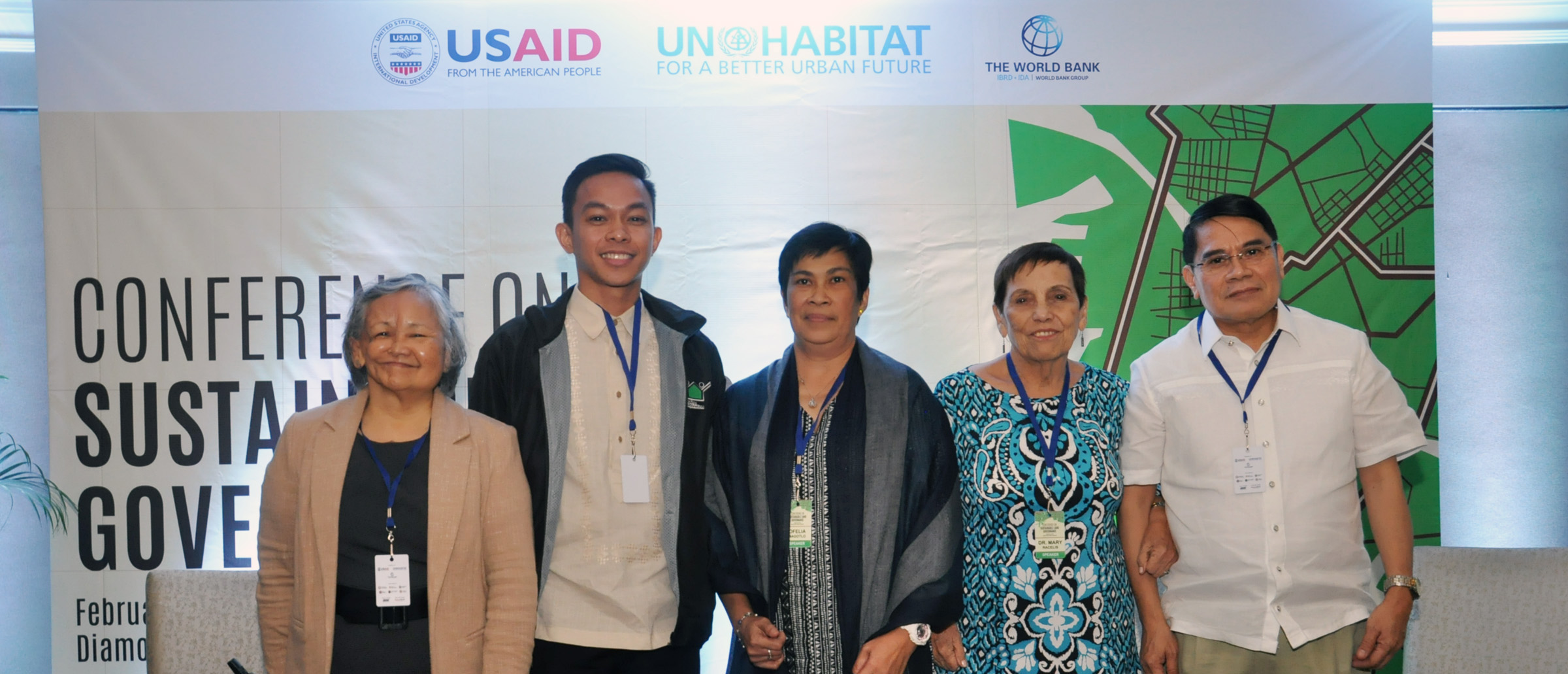
Tackling Gender and Social Inclusion in Property Rights at the Sustainable Land Governance Conference in the Philippines
Gender equality and social inclusion issues in land administration and management took center stage during a panel discussion on Gender and Social Inclusion in Property Rights of the Conference on Sustainable Land Governance on February 8-9, 2017 in Manila, Philippines. The conference was organized by the United States Agency for International Development (USAID) through it Strengthening Urban Resilience for Growth with Equity (SURGE) Project, in partnership with UN-Habitat and the World Bank. More than 90 representatives from national government agencies, local government units, academe, international agencies, gender advocates, non-government organizations, people’s organizations, development practitioners and gender specialists participated in the panel session.
The session featured panelists from two shelter agencies of the national government, namely Executive Officer Atty. Junefe Payot of the Socialist Housing Finance Corporation (SHFC) and Assistant General Manager Froilan Kampitan of the National Housing Authority (NHA). Other panelists included community leader Ms. Ofelia Bagotlo of the Homeless People’s Federation Philippines, Inc. and urban sociologist Dr. Mary Racelis of the Ateneo de Manila University who has long worked with informal settler-communities in Metro Manila. Ms. Jeanne Illo, Gender Advisor of the SURGE Project, served as the moderator of the panel discussion. The panelists presented common gender equality and social inclusion challenges in accessing land and housing rights, and what approaches can be done to integrate these in land administration and management. One such approach is through efficient land use planning and allocation of space for socialized housing that can address the interests of women and youth in vulnerable and marginalized groups.
Enlightened by the panelists’ presentations, a delegate from Iloilo City, one of USAID’s Cities Development Initiative partner cities, expressed the idea of a partnership among the City Government, NHA and SHFC in developing high density housing as a way to address the need for on-site socialized housing in the city. This, if pursued, can provide a perfect opportunity for the city and the two agencies to embark on an inclusive, gender-responsive urban land use planning and socialized housing.
